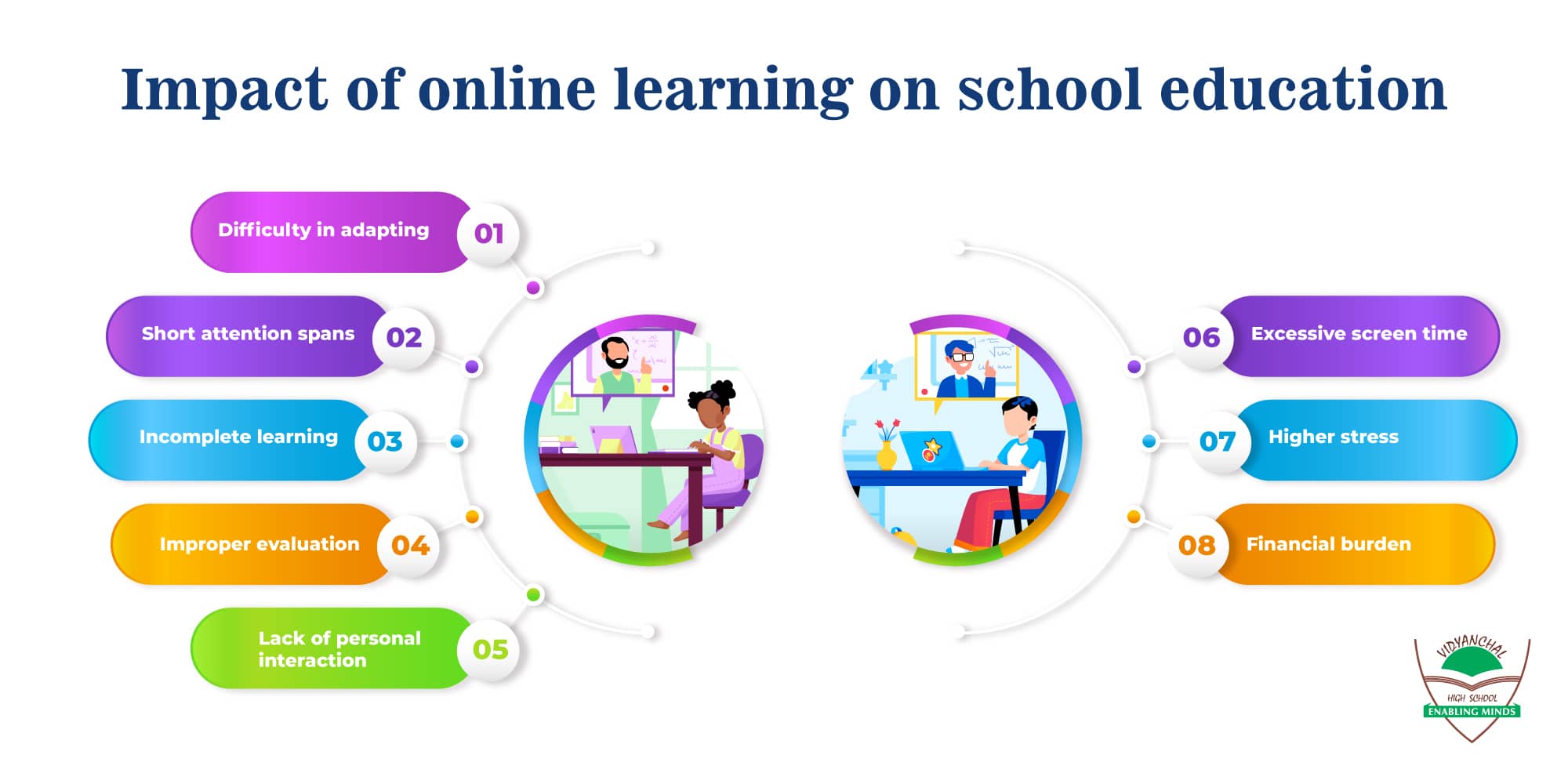Impact of online learning on school education in Pune
Online learning and remote classes are perhaps one of the biggest upheavals that we have faced in the last two years due to the COVID-19 pandemic. As schools shut down across the globe, teachers and administrators had to scramble to find solutions and continue education in these unprecedented times.
Soon, schools started using video conferencing to conduct classes, as well as online proctoring platforms or other such sites to conduct evaluation. While the technology and the sudden change caused a lot of problems in the initial phases, as more and more time has passed, both students and children have gotten used to this new form of learning. With new innovations taking learning forward, it seems that online education now has the technological support required to make it work properly.
As the pandemic is brought under control with vaccines and social distancing, schools have seen a new hope. In most states of India, secondary schools have started to open, at least on a voluntary basis. However, new problems have risen up as schools open. It has been reported that physical attendance is low due to fear of the virus as well as because students have gotten used to the online mode and now prefer that over physical classes. As teachers, administrators, students and parents deal with these new changes in the education landscape, here is a rundown of how online education has affected schools in Pune:

Difficulty in adapting
At the start of the pandemic, when learning shifted to the online mode, all those involved had a very tough time adapting. Students felt disconnected from their studies and peers and missed their old routines, while teachers found it hard to effectively teach and keep the class under control. The time taken for everyone to get used to this mode resulted in a gap in learning where the focus was shifted from education to other concerns.
Short attention spans
As online classes wore on, the biggest complaint from the teachers and parents was the lack of attention paid by students. When one is attending class online, it is easy to get disconnected from what is being taught. The ease of muting oneself and shutting off videos means that there is almost no supervision or rules to be followed. Similarly, with televisions and phones in hand, children have a plethora of distractions in their homes, which also contributes to the problem.
Incomplete learning
The online mode of education is full of compromises and quick fixes. Certain subjects, such as languages, music, art or sports cannot be conducted properly in this setup. Furthermore, practical experiences such as conducting experiments or making charts have been completely eradicated from the curriculum. This means that a lot of the learning is simply skipped.
Improper evaluation
Online exams take place through a variety of methods. Online forms, test-taking websites, online proctoring sites, etc. are all employed to conduct online evaluation of the students. However, it has been clear since the beginning that this mode is unreliable. Without physical supervision, students have been observed to cheat, copy or even not complete exams at all. Vivas and practical exams too have to be cancelled or conducted hastily, resulting in a gap between learning and evaluation. Thus, most teachers have no way of determining whether or not learning is actually on the right track.
Lack of personal interaction
Perhaps the biggest issue with online learning for students has been the lack of personal and social interaction that schools would bring. For most children, school is where they make friends, meet with them and enjoy the company of their peers. However, when the classroom is taken away, children are left bereft of this socialisation. Furthermore, since venturing outside one’s home has been discouraged, they could not interact with each other at other places such as parks and playgrounds. This disconnect with their peers has left many students feeling lonely and anxious.
Excessive screen time
Online education has also brought with it some health concerns. As students need to attend school for 6-8 hours everyday in front of computer and laptop screens, their physical health has gone for a toss. Headaches and eye issues have become common due to the glare of the screens, while neck aches and sore shoulders are also observed as a result of sitting in the same position for long. Screen time has exceeded the recommended levels for most school children and that is a real concern for both students and parents.
Higher stress
Adapting to a whole new mode of education, high amounts of screen time, being away from one’s friends and peers coupled with the stress of the pandemic has led to students developing mental health issues. Higher levels of stress are being reported among even the younger students, while most students are complaining of feeling depressed, anxious, demotivated and lonely. These mental health issues not only affect the learning process, but can also have a long lasting impact on the child in the future.
Financial burden
Online education requires a whole host of technological systems for it to work. Students require phones, laptops as well as certain softwares that are being used constantly in classes. During the pandemic, a lot of people lost their jobs due to lockdowns and there was a general financial crisis in the country. In such a situation, buying the devices needed for online education became a huge financial burden on those families that were already struggling. Furthermore, in families with multiple children at different academic levels, the expenses mounted even higher, resulting in serious financial issues.
Conclusion
While online education is making progress each day with new technology and teaching methods, it is clear that it has had quite a negative impact on students’ physical and mental health, their social circle as well as their learning. While attending classes from home is easy and comfortable, it is important to remember the merits of physical classes in the long run and students, teachers as well as parents must be encouraged to support the reopening of schools throughout the country.
